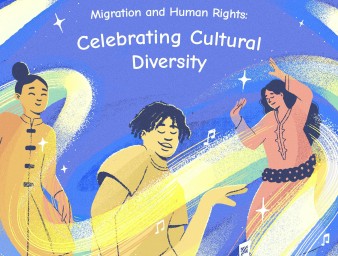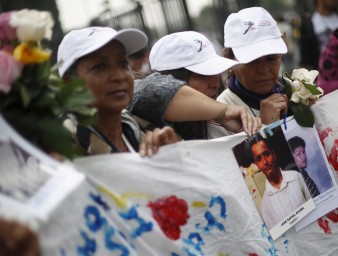From North Kordofan to Angers
17 March 2022
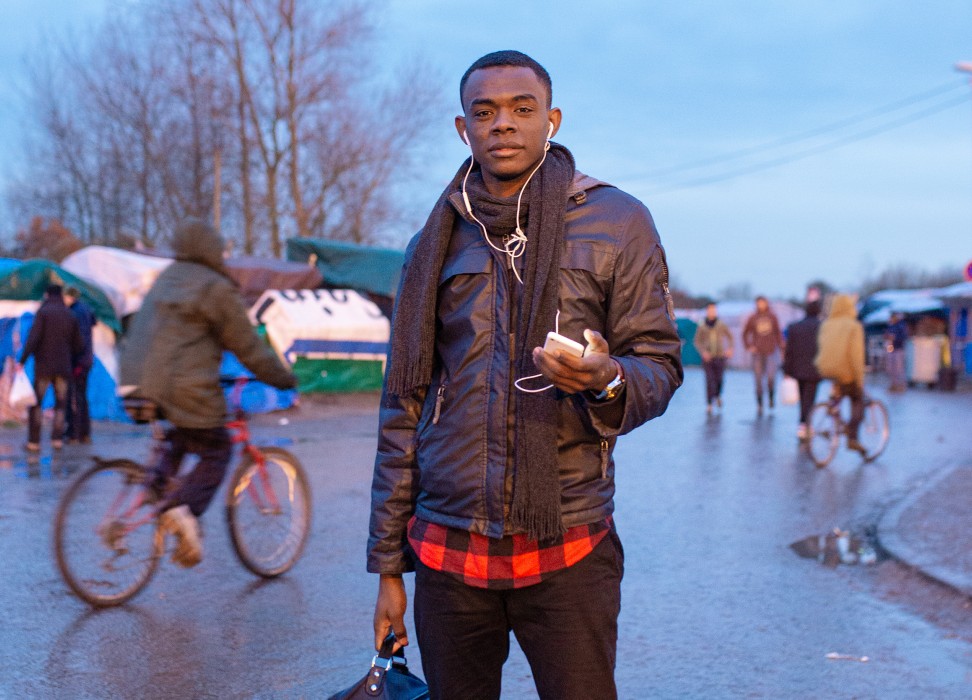
As part of its #StandUp4Migrants campaign, UN Human Rights teamed up with Reuters Visual Journalist Maurizio Martorana, who recently travelled to northern France to meet up with Moussa, a Sudanese refugee living in Angers.
Martorana first met Moussa at the Italian French border town of Ventimiglia in the summer of 2015, after Moussa had made many unsuccessful attempts to reach France. He recalls Moussa’s “magnetic smile, unyielding optimism and generosity towards others.”
They have been friends ever since.
Martorana tells Moussa’s story, a story which shows the power of community.
Moussa jogs along the bank of the River Maine in the historic city of Angers, France, every Saturday. Running by this river at dusk helps him wind down after a week of hard work.
I last met him here on a cold December afternoon when he was on the way to a Christmas fair with his girlfriend. They played Tin Can Alley, went on bumper cars, and then had a romantic dinner in the city centre.
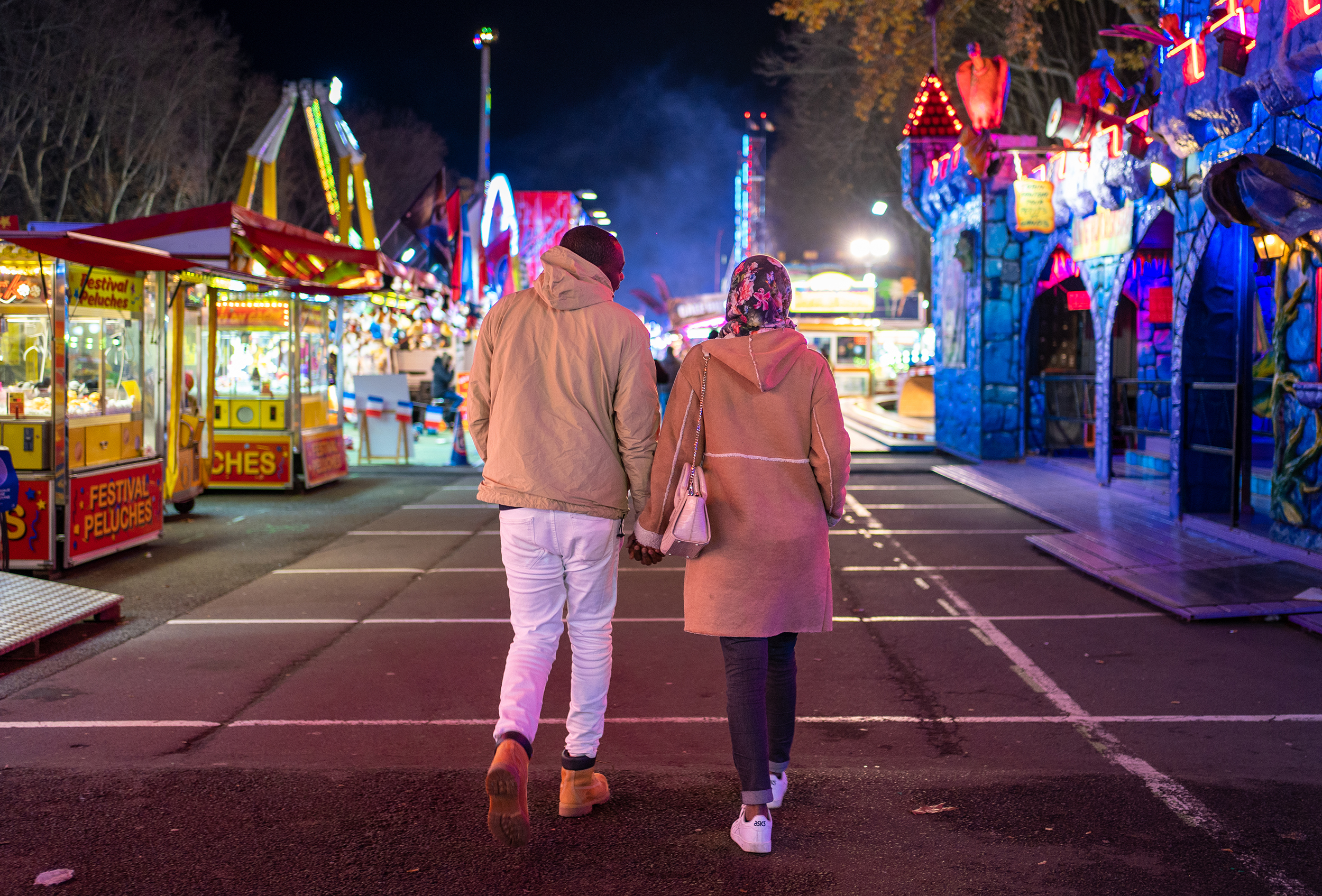
Moussa and his girlfriend Lina walk hand in hand at the Christmas Fair in Angers, France. © Maurizio Martorana
Moussa, who enjoys the typical life of a young man in his late 20s, says that the Angers community has openly welcomed him into their lives.
“People in Angers are very welcoming and kind,” he says. “As soon as I moved here, I built very good relationships, especially with my neighbours. They introduced themselves, they said that whatever I needed they could help me with, just to ask them.”
Moussa lives next to an 80 year-old woman. “We like to chat. She tells me about her life and her youth, and she has been very kind to me.”
“I don’t know Angers very well yet. I moved here two months ago from Rennes, which felt like my birth city, my country. I have very strong feelings and attachment to Rennes. I am sure I will one day feel this way about Angers, too” says Moussa.
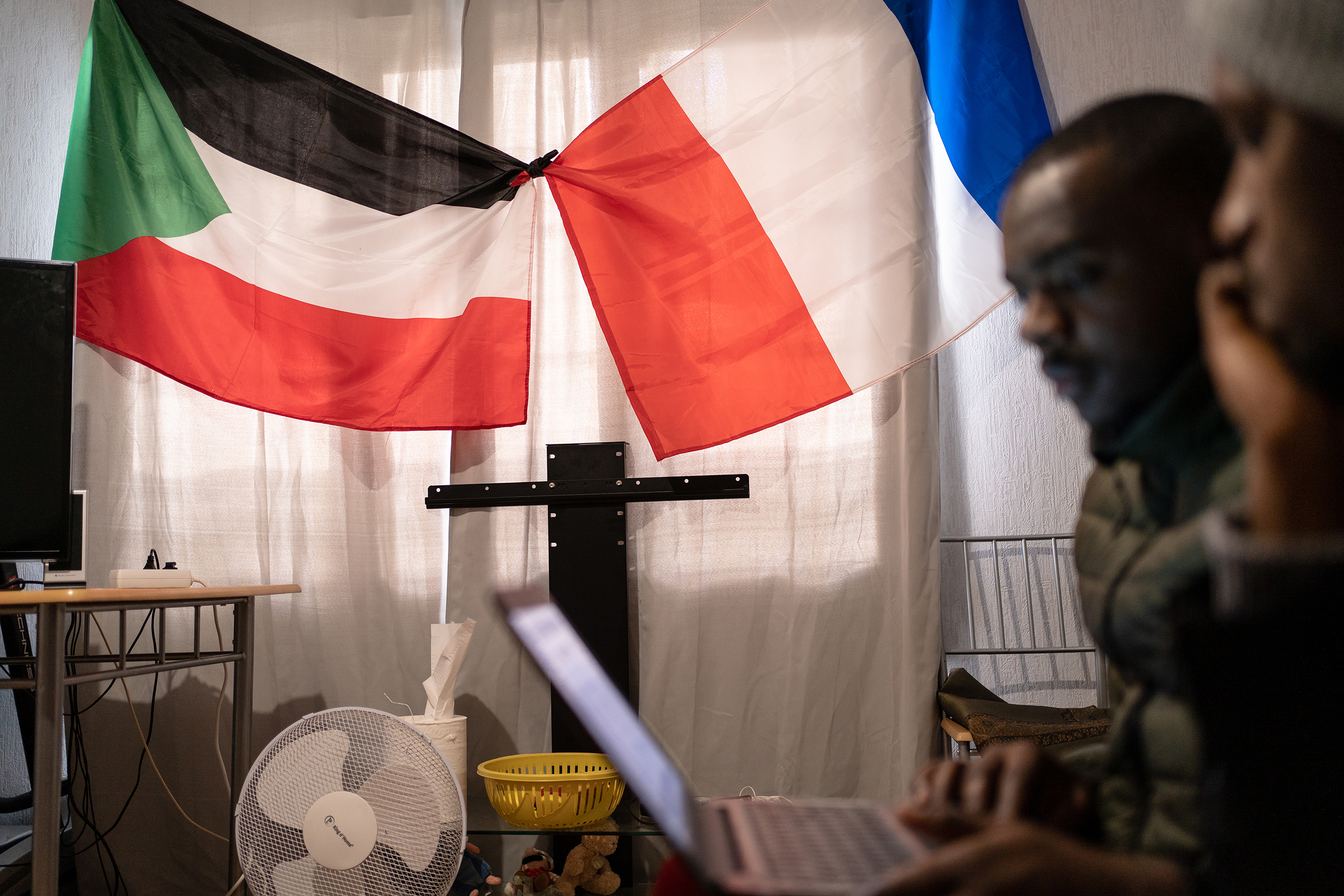
Moussa helps out an older Sudanese woman by fixing her laptop. Pictured at his friend Moustapha’s house in Rennes France. © Maurizio Martorana
Sudan was no longer safe for me
Only eight years ago, Moussa escaped Sudan where he had been imprisoned in North Kordofan for participating in a protest following the Arab Spring movement, hoping for systemic change in the country. While detained, he was tortured severely to the point that he was sent to a hospital.
“Sudan was no longer safe for me,” says Moussa. He risked spending more time in prison just for attending a protest. As soon as he was released from hospital, he crossed the Sahara Desert and the Mediterranean Sea, with a view to seek refuge in the United Kingdom.
This was just the beginning of a four-year odyssey that would take Moussa to the encampment of Calais, also known as the “Calais Jungle.” Conditions were dire in the camp, where up to 9,000 refugees and other migrants at its peak lived in makeshift tents with poor to non-existent infrastructure, sanitary facilities, or running water.
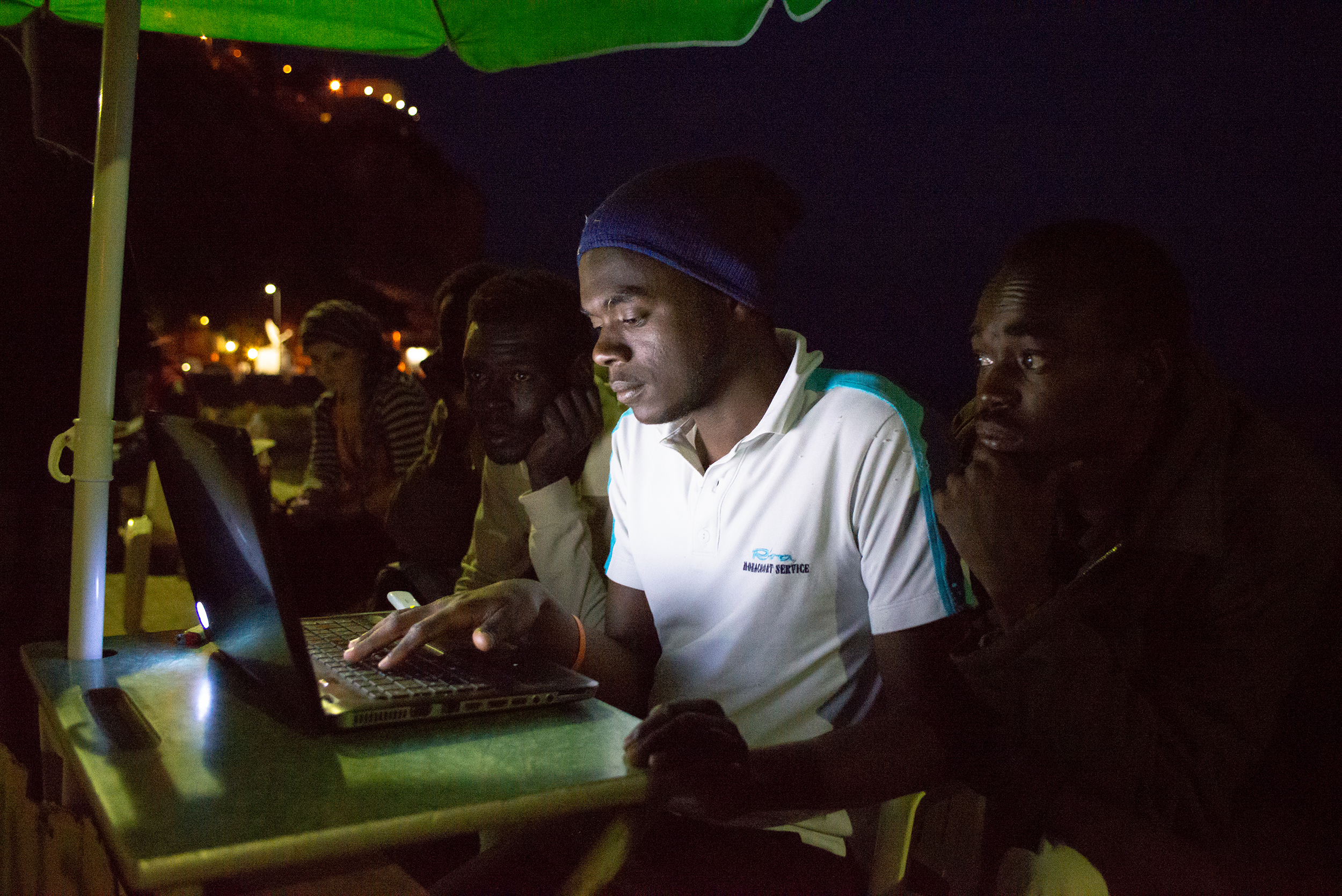
Moussa first reached European shores in Ventimiglia, Italy. Here, stranded on the coast, he uses a laptop provided by activists to communicate with friends and family in Sudan and to make plans for his future. © Maurizio Martorana
A new life
Despite these adversities, and seeing how dangerous it was to attempt to reach the UK, Moussa was determined to learn French in order to be able to seek asylum in France.
With the help of an app on his smartphone and attending language classes held by volunteers, he managed to learn the language well enough to apply for asylum.
Moussa fondly remembers Natalie, a 63-year-old designer who volunteered as a teacher, “I was very lucky to meet Natalie, who helped me to learn the French language. I see her as my French mother,” says Moussa.
He finally received asylum status in 2017.
Natalie also supported Moussa to get a place in a French language course at Rennes 2 University, where he graduated with a diploma in French Studies.
“I walked three quarters of an hour back and forth from university as I could not afford a bus pass during my first months there,” recalls Moussa. He eventually took on a variety of jobs: a fruit picker, supermarket assistant, electrician, and factory worker.
Moussa told me however that his dream was to work in a technology-related field. He enrolled in a web development course while in Rennes.
The importance of community
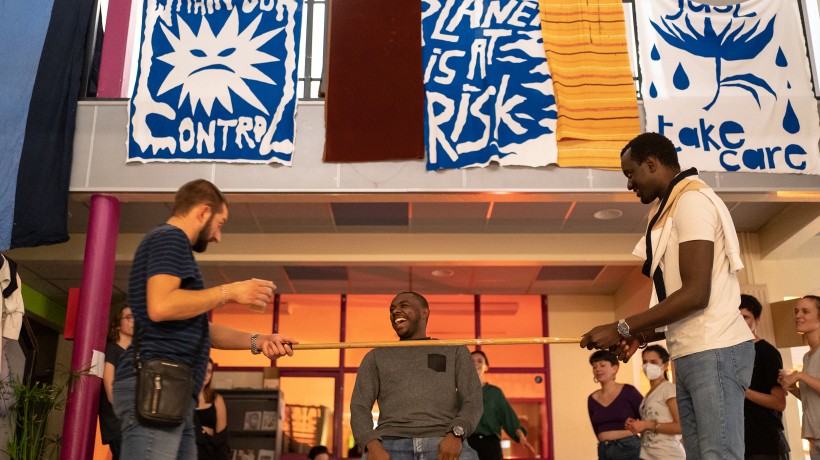
Moussa with friends at the Antipode Youth Centre. © Maurizio Martorana
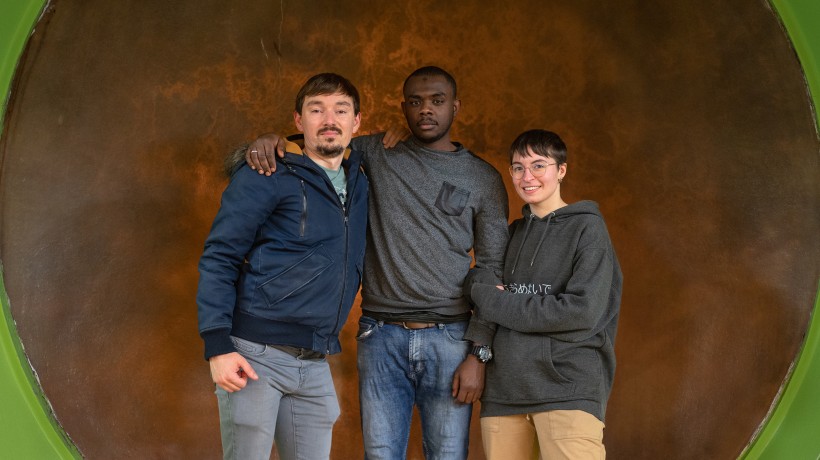
Guirec, Moussa and Eli at The Antipode Youth Centre. © Maurizio Martorana
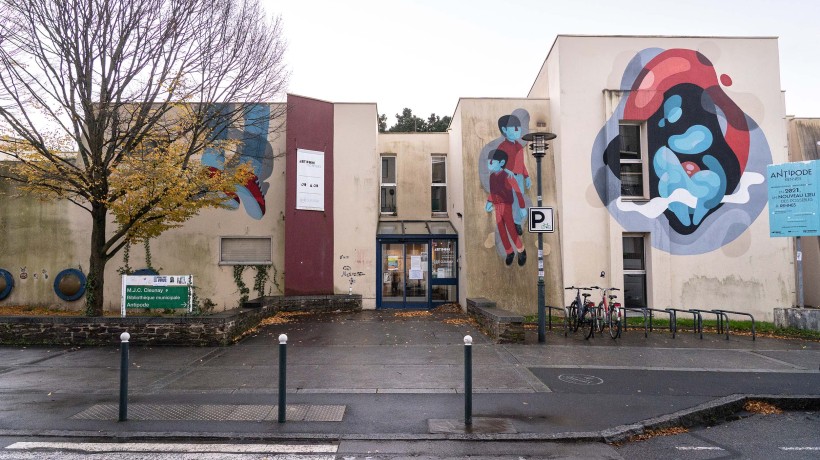
The entrance of The Antipode Youth Centre. © Maurizio Martorana
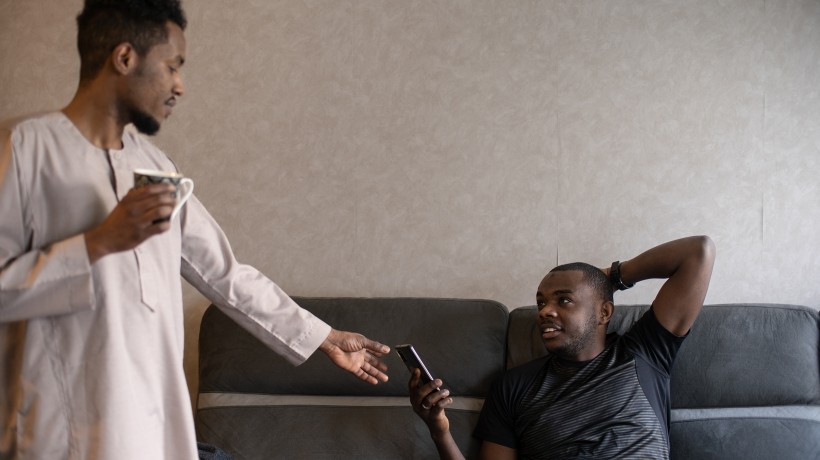
Moussa with his friend Moustapha in Rennes. © Maurizio Martorana
I was struck by Moussa’s commitment to his new community. He told me how he had volunteered as an Arabic translator for D’ici d’ailleurs (DIDA), a non-profit organisation set up to create links between asylum seekers and the local community. He also participated in an art workshop run by Keur Eskemm, a Breton youth organisation.
“Moussa is very open, sociable and listens to people,” says Guirec Vannier, co-founder of DIDA, who became good friends with Moussa. “He really wants to help the community and foster social cohesion.”
When living in Rennes, Moussa also volunteered to support youth and marginalised minorities. COME:ON!, is a project co-founded by the Erasmus+ programme of the European Union and coordinated by Keur Eskemm. The project’s objective is to allow youth and marginalised minorities to travel to different European cities and use vacant places for cultural and cooperative use.
Moussa himself has been able to visit Saint-Malo in France, Belgium, Latvia and Romania, as well as the Antipode Youth Centre in Rennes where the project is currently temporarily located.
Football has also been a crucial way for Moussa to discover his new home. In Rennes, he played with local football club FC Beauregard for two years, and organised matches between a Sudanese and a French football team in his spare time.
“Sport is very good to bring people together,” says Moussa “It is a very good opportunity to make new friends.”
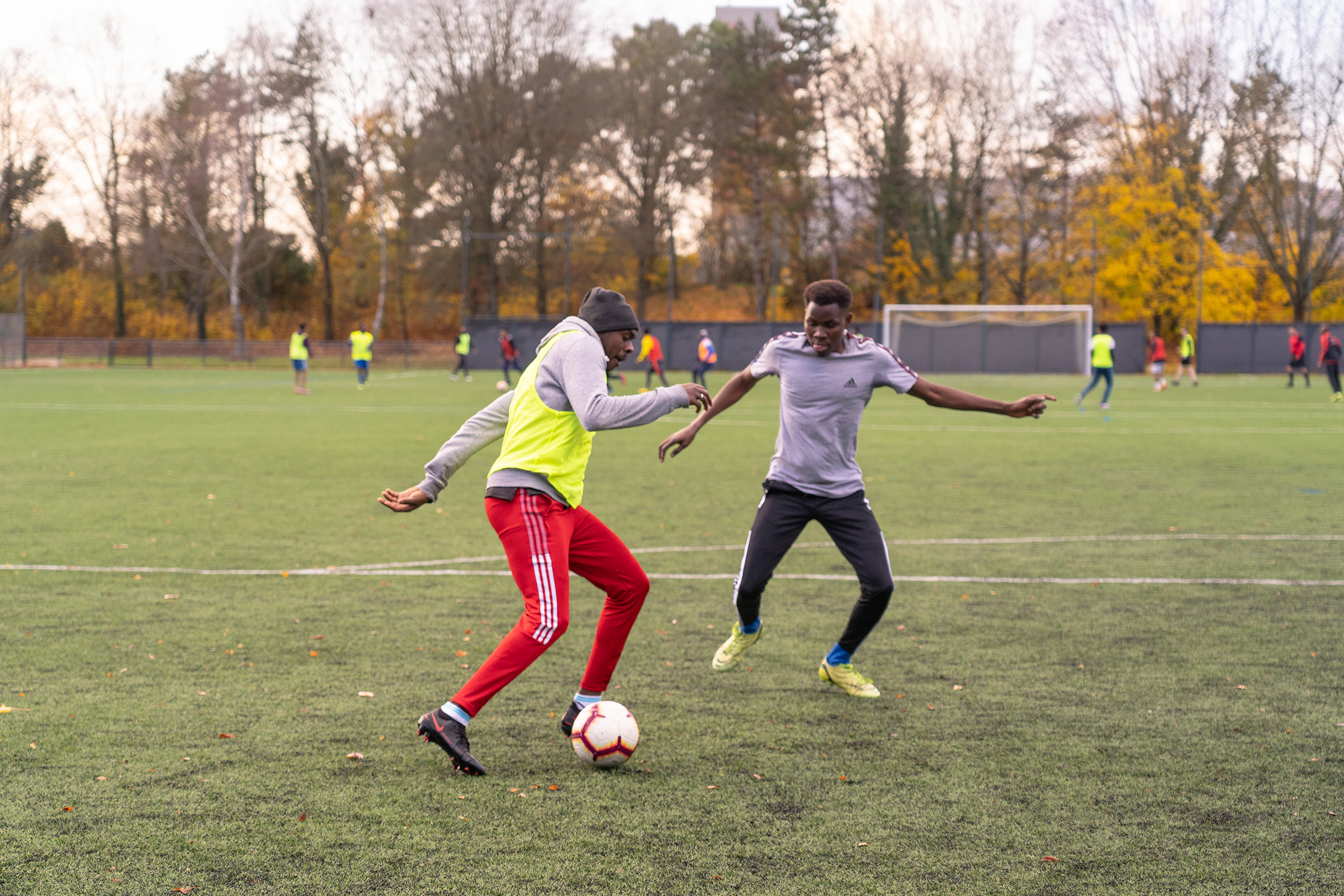
Moussa playing football in Rennes. © Maurizio Martorana
A new beginning
Moussa told me that he had applied for a council house in Rennes, but instead was granted one in the medieval city of Angers.
Although he has now left all he achieved and everyone he met behind, he has also opened a new chapter in his life. In Angers, he met his girlfriend Lina—they are getting married next year and hope to start a family in France.
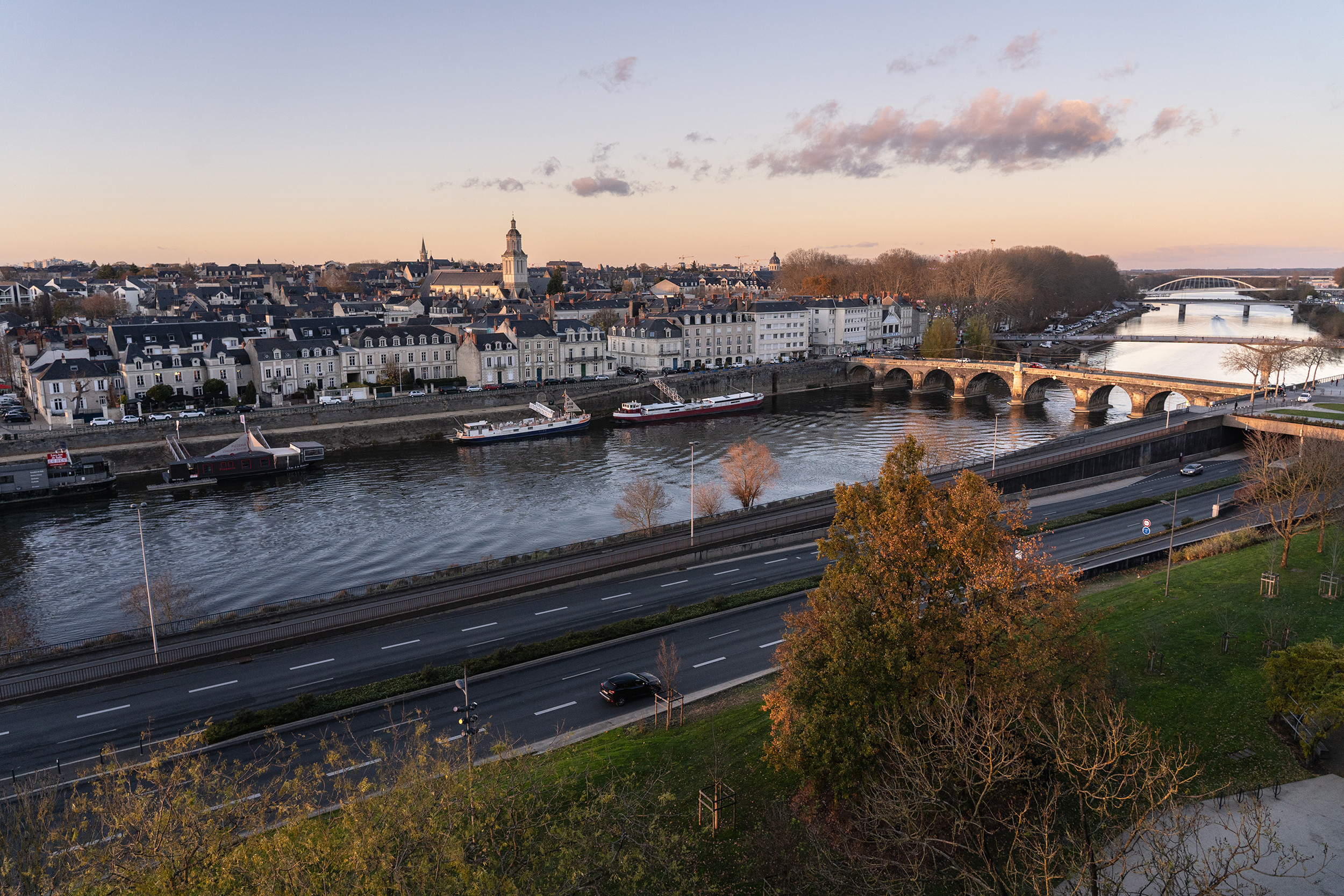
View of the river Main, Verdun Bridge and downtown area from Angers Castle. © Maurizio Martorana
When I asked him about how he feels regarding his identity, Moussa says that he is between two worlds - the one in France in which he aspires to be integrated, and his homeland, where some of his friends and family still live.
On my final day in Angers, I received a call from Moussa. He sounded excited. “Do you remember that job I applied for? I did an interview and got it. I will be a Digital Skills Trainer. I will be working with many French people and refugees as well, a good opportunity to make new friends in Angers.”
And he adds: “As a Sudanese saying goes: Love what you do today until you do what you love.”
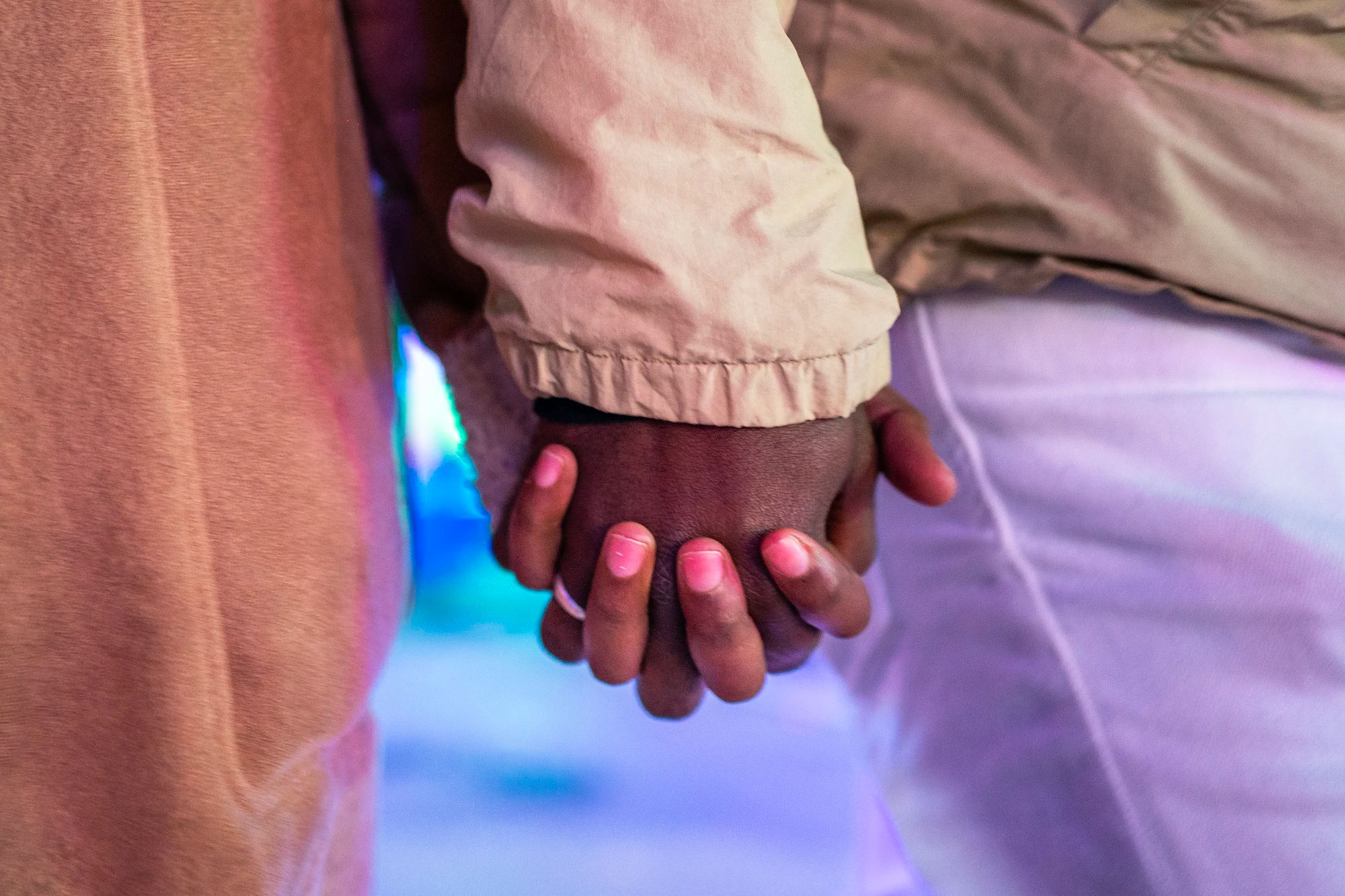
Moussa and his girlfriend Lina walk hand in hand. © Maurizio Martorana


